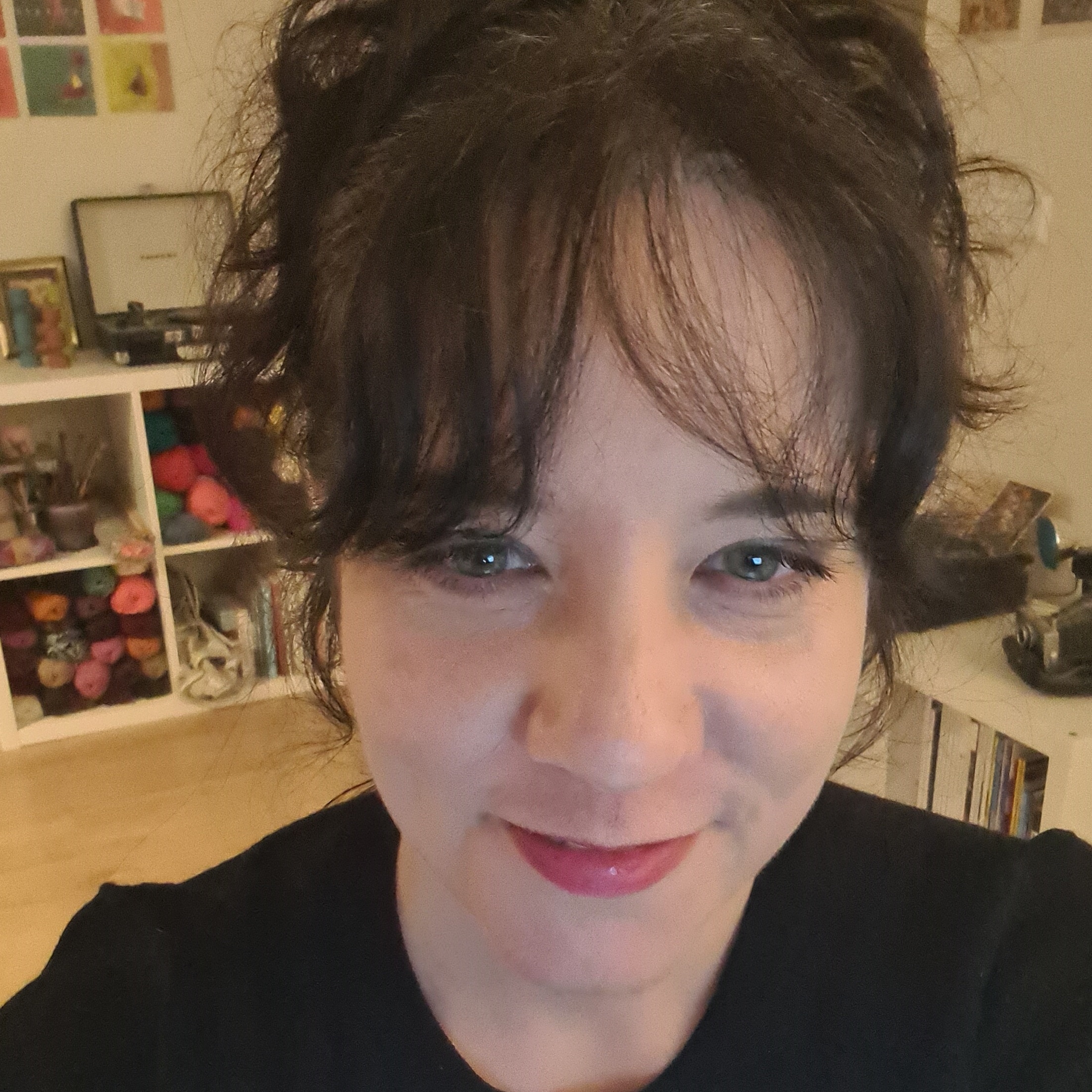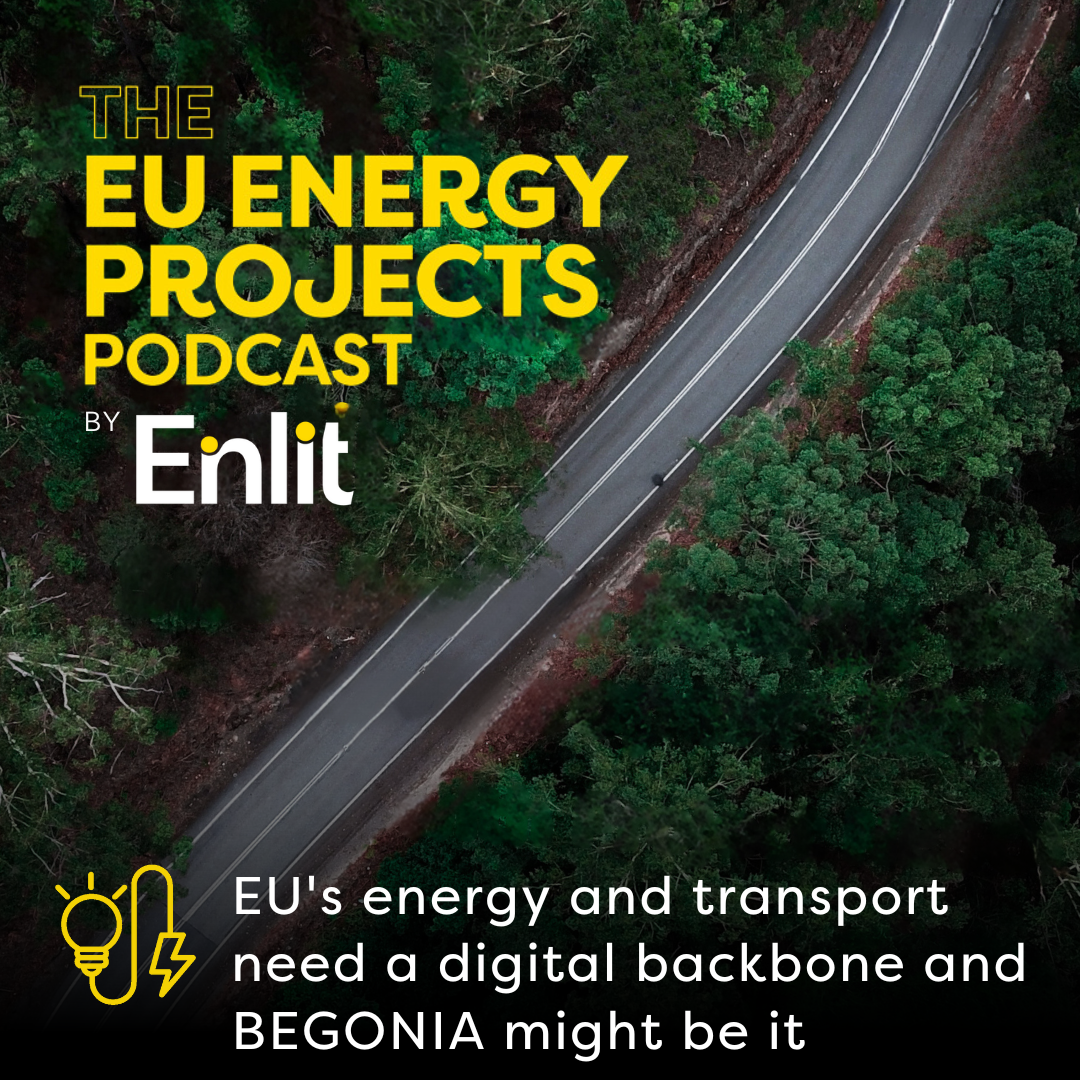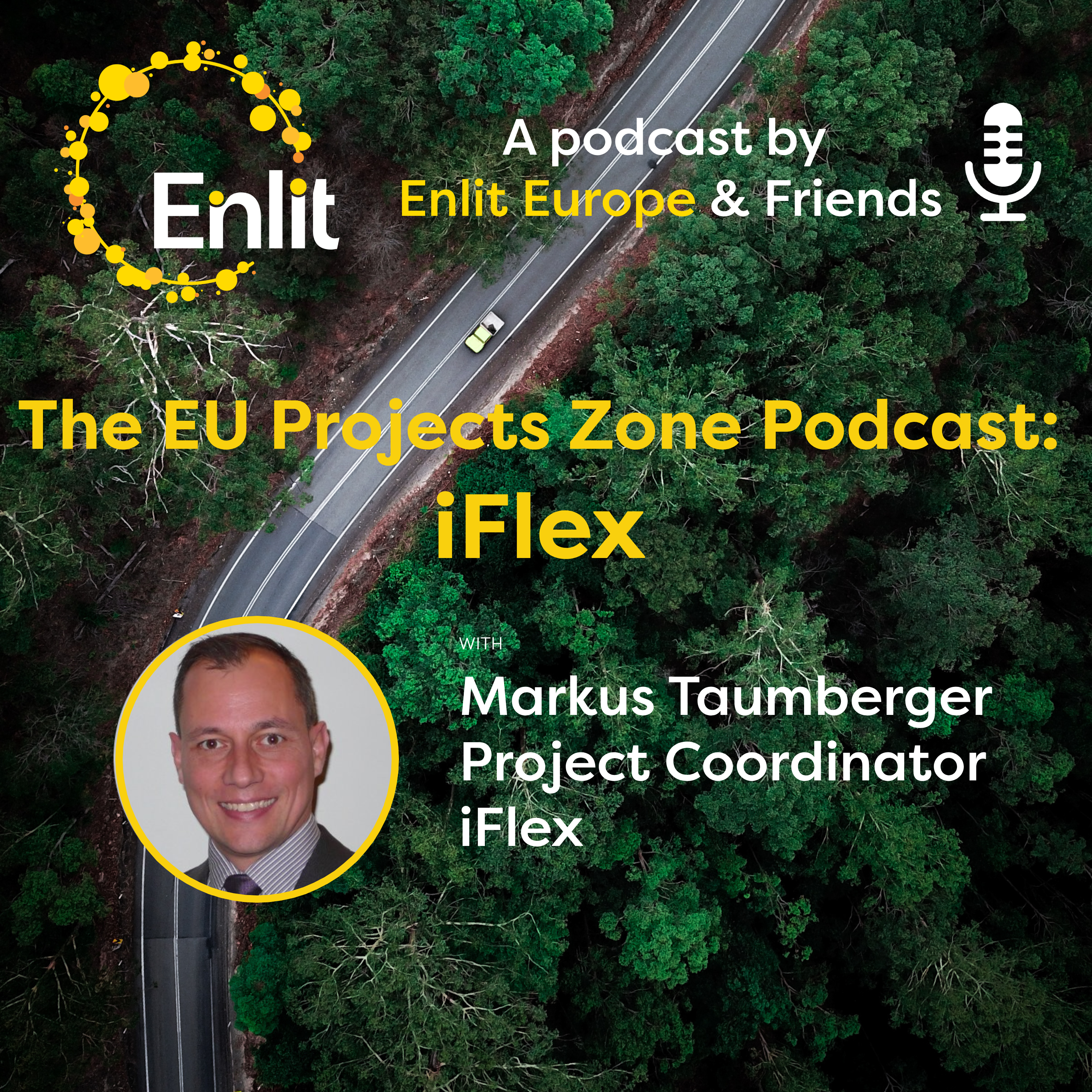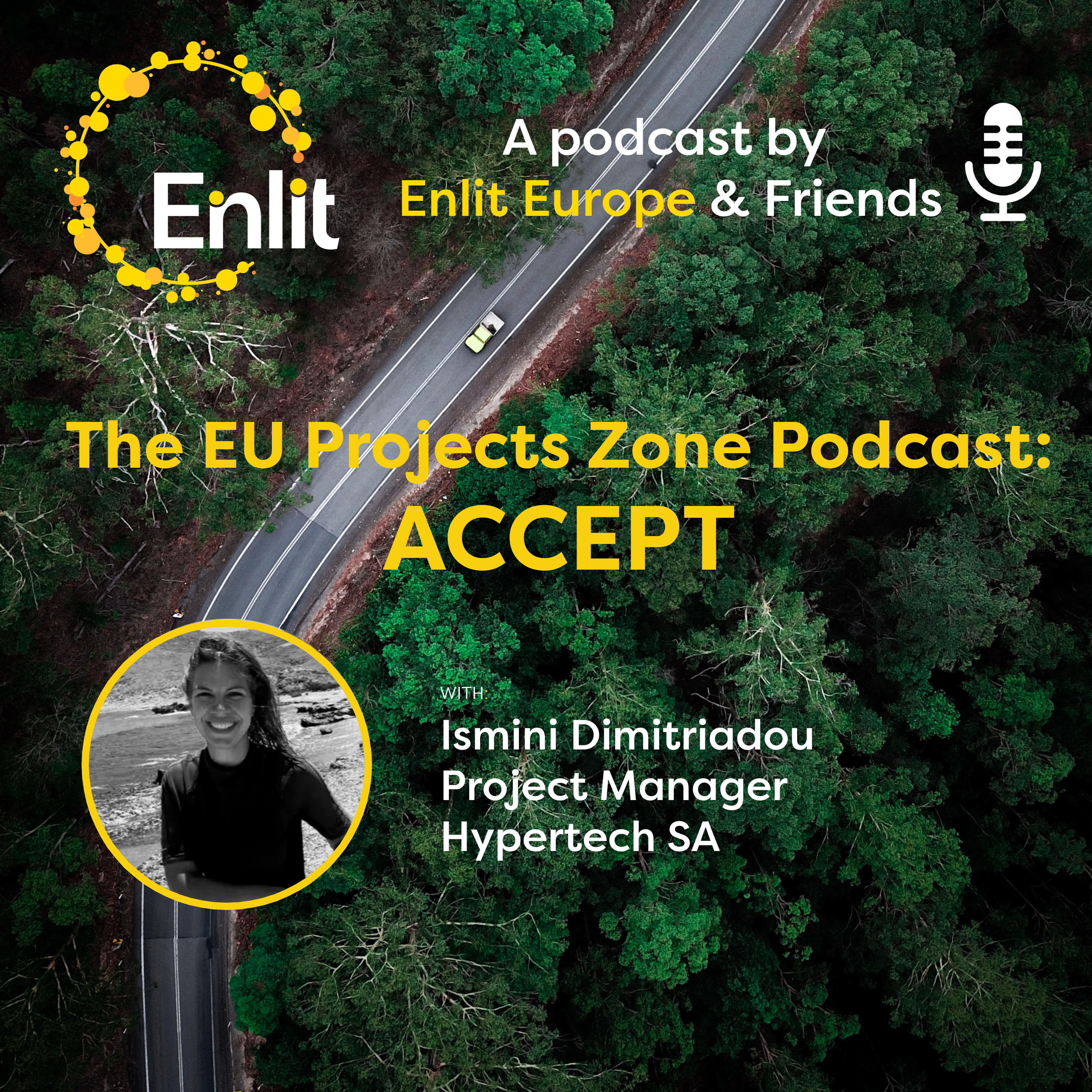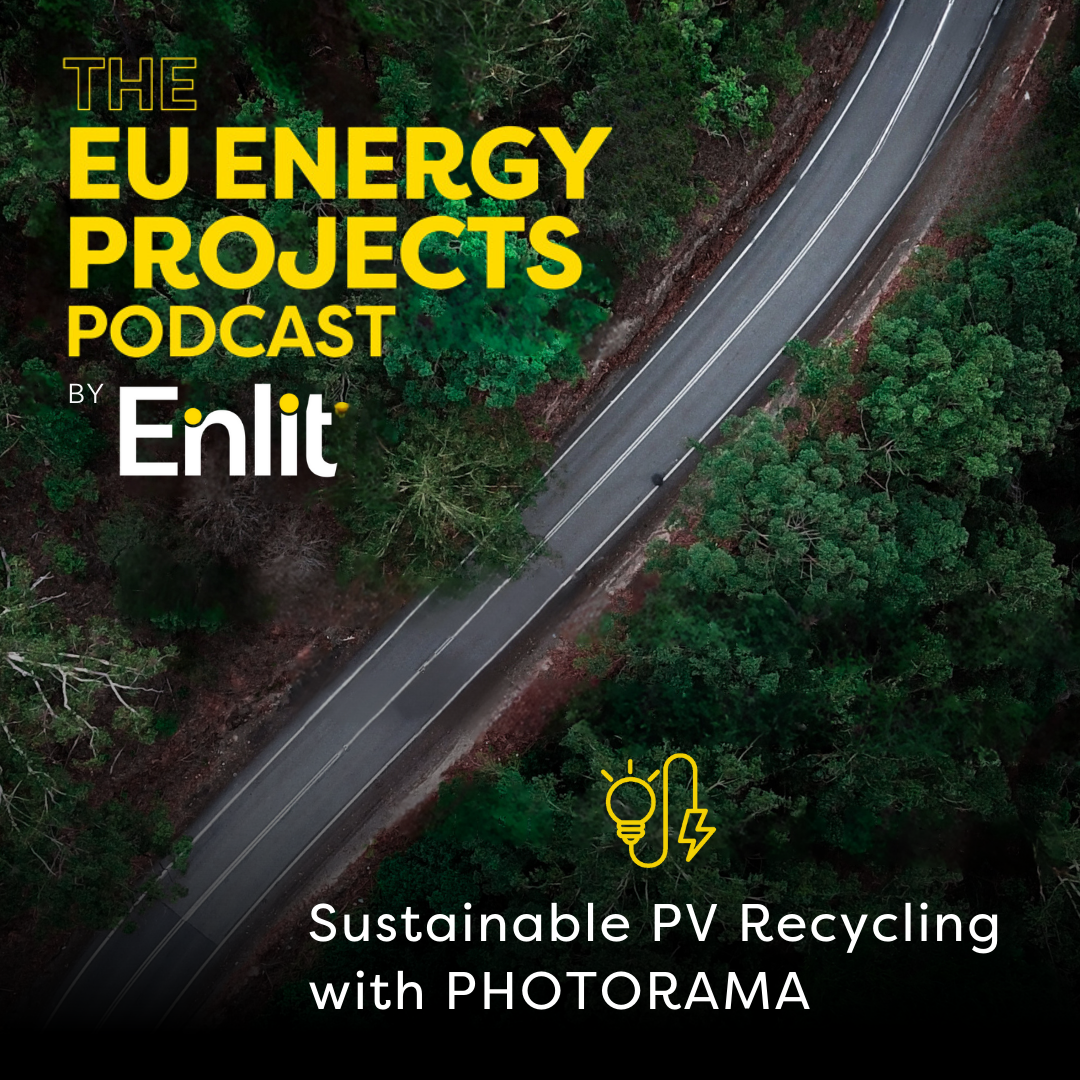Episode Transcript
[00:00:10] Speaker A: Welcome to the EU Energy Projects Podcast, a podcast series from Enlida and France focusing on the clean energy transition for the European Union and the EU Commission funded energy projects that will help us achieve it. My name is Aretid Daradimu, I. I am the editor of the EU Energy Projects Podcast and your host Europe is embarking on a transformative endeavor to modernize digital information usage with a focus on enhancing the efficiency, sustainability and connectivity of our energy and transportation sectors. At the core of this initiative lies the development of advanced operational digital platforms or ODPs that transcend national boundaries. The EU funded Begonia project aims to expedite this digital transformation, starting with cross border use cases of ODPs in the energy and transport sectors. I am joined by Niccolo Fattiroli, COO of Olivo Energy and leader of the Stakeholder Engagement and Communication working package of the project, to discuss the goals and their plans to achieve them. Nicolo, what is Begonia and what are the main goals and expected impacts of the project? How does it contribute to the digital transformation of energy and transport in Europe?
Nicolo, what is Begonia and what are the main goals and expected impacts of the project? How does it contribute to the digital transformation of energy and transport in Europe?
[00:01:51] Speaker B: Hopefully very much.
First of all, thank you very much for having me.
Well, Begonia, first of all, I think that the most important thing to say is that it's a coordination and support action. So it's not a typical European project. We are not developing ourselves anything new or testing anything new.
What we are doing is that we are preparing something for the future, right? So coordination, support action means that we are looking at what is some, some good ideas that we have in Europe. We are trying to identify them, develop them and then pass them to the European Commission that is going to put them in a new call for proposals and co found them in the near future. So this is our job and this is what we are trying to achieve with our project. As you mentioned, we have a very specific focus that is on operational digital platforms and this is actually something a bit new. I would say ODPs do not have a final definition, but in any case it's worth mentioning what is that we think that they are, because clearly they are at the core of our project.
What we mean by ODPs are both physical and virtual information and communication technology resources that have the target to enable the processing and storage and analysis of data in the energy mobility sectors. In our case, they are basically to try to simplify the concept that very flexible wide data platforms, but that have to build in or integrate with other existing platforms or data infrastructures across Europe. So they're like a broad term of data platforms in which you can build in multiple services into.
[00:03:53] Speaker A: The project mentions a 2.5 year time frame with an evolutionary approach. Can you elaborate a little bit on the key milestones within these stages?
[00:04:02] Speaker B: As I was mentioning before, we are a preparatory action. So we started in January 2024 and our main target back then was to scan the European framework and to try to identify best practices of operational digital platforms that were interesting for us.
At the beginning of the project we identified 14 of these platforms, but of course there were a lot. So the next phase of the project was the investigation of these use cases and their selection. From 14 we passed to 6, both by selecting them actually, and by merging them all together.
In this moment we are in the process of doing a second selection from six to three. These final three use cases are our main goal because they will be included in a call for proposal of the European Commission that is going to co found their implementation.
So the call for proposal is the European Commission is drafting this call for proposal in this moment. We are going to help them out in doing so. Quite likely this will be released in September or October this year. We don't have a very clear timeline yet, but this should be the one. And what is interesting is that again, we are a preparatory action. Begonia will not stop.
When this call for proposal will be released, Begonia will continue and we will actually overlap with the project that will be awarded. And our last six months will coincide with the first six months of the awarded project. Exactly, because we can support the first phases of the implementation and we can pass all the information that we have. What is interesting then about Begonia and about all these interested stakeholders that would like to participate in this implementation is the fact that the Commission is very willing to co invest.
So quite likely the investment will be up to 20 million.
And that in this case we are talking about an implementation. So we are trying to set the ground or prepare everything for the actual deployment of the operational digital platform. So this is not about investigation, it's about real deployment.
[00:06:29] Speaker A: And basically you answer the question that came to my mind. Because 2.5 years, 2 1/2 years are not enough for what you're trying to achieve. But if it is only a preparatory, let's say act, that will afterwards get more years through the new project, then it makes sense, right?
[00:06:49] Speaker B: Absolutely. Well, our activity and probably the complications that we have to deal with is that we are kind of in between. So there was a part of our project that is and was and still is pure investigation, trying to understand what is that we have around us and then to try to identify what are the three best use cases to pass them to the Commission. On the other hand, though, we are also already developing these concepts. We are not going down to the details of the implementation, but in any case, there is a a lot of work for the preparation of the system architecture, the governance, the regulatory analysis. So we are not going down to the actual implementation, but we are doing already a lot of work so that we are going to have three use cases that are very developed and then the awarded consortium will be able to pick up like half point, let's say, and just focus on the implementation. Probably the most important point is that our use cases are based on concrete examples that some initiatives or some actors are thinking to develop or already have partially developed. But of course, the moment that they will go into the call for proposal of the Commission, nothing stops anyone else to try to develop them in another country.
And this is actually very relevant, especially when we think about the regulation. We can do a regulatory analysis and we know how regulation is key and how much the regulatory barriers are important. But our regulatory analysis is very European. Then, for the actual implementation, the new consortium will have to understand what are the barriers to implement it in the specific countries in which they want to implement it. However, we are absolutely making sure that whatever we propose is absolutely in line with the European regulation, meaning that very shortly our concept should be implementable all.
[00:08:48] Speaker A: Over Europe, as it should, if I may add, and I want to roll back to you mentioned a little bit about modernizing digital platforms, et cetera. So this project Begonia aims to modernize digital information usage, if I have understood this correctly, in both the energy and the transport sectors. So to very important and very big sectors within the European context. Now, in light of the rapidly evolving digital landscape and the relevant political changes that we both know and our listeners also know are very, very important and many. How is Begonia fitting in this context? Like how has the EU Commission's Digital Decade plan, for example, influenced your project or the Digitalization Act?
[00:09:39] Speaker B: Highly, I would say from one point of view, I think that the most important thing to say is that we are perfectly aligned with these political trends. And I think that this was one of the main targets of the Commission when they released the code that we participated in two and one with the Begonia project. Right. So one of the key aspects, or let's Say that the Digital Decade plan recognizes the importance of the deployment of large scale projects that are critical to achieve our targets at 2030 and cross border collaborative projects. And this is exactly what Begonia is. So our ODPs have to be, and this is one of the main criteria that we have in order to select them. They absolutely have to be cross border and possibly cross sector energy and transport. The cross border aspect, as we know, is absolutely critical at the European level. And this is one of the main features of the ODPs that we are trying to develop.
This in turn also feeds into the most recent political trends and discussions. For instance, what happened with strategic policy paper like the Draghi of the letter report that had been released in fall this year. That influenced us in the sense that kind of reinforced everything that we were doing. They both kind of foster a greater European integration, boosting competitiveness. And let's say that we are trying to develop functioning large scale cross border platforms with a clear business model behind. So we are feeling that we are perfectly aligned with it. And we have always tried to point out and understand how each and every one of our use cases was feeding into this political context. Of course, there are other pieces of regulation that we definitely had to take into account, like the Artificial Intelligence Act. This was absolutely mandatory for us. Then of course we took that into account in our regulatory analysis. But this is kind of obvious. The artificial intelligence is kind of a revolution, maybe at the same level of the Internet revolution.
And every time that we talk about data, we're also talking about artificial intelligence. And in fact, in all of our use cases, we somehow have artificial intelligence applications and we definitely have to take that into account.
[00:12:08] Speaker A: Yes, artificial intelligence is very much in the front line right now. I don't know. Have you also participated in the etipsnet white paper about AI? It was presented at the Bridge assembly a couple of weeks ago and I was just wondering if you were part of it or not.
[00:12:25] Speaker B: We sent our feedback to Bridge. We have part of our consortium, highly representative of EthicsNet. So of course we are interacting very much with this kind of initiatives. Absolutely, yes. I would say that most of all the importance and the impact of artificial intelligence and its application. We will have to take it into account when in the last six months of our project, when we will help the actual deployment of the solution with the consortium or the consortia that will win the call for proposals. Now, again, we're building a framework, so we are pointing out how relevant it is. We're highlighting the key aspects, but of course it will be up to the actual implementation of the project to tick all the boxes and see that they are perfectly aligned with it.
[00:13:14] Speaker A: Makes total sense. And coming back a little bit to Begonia and the timeframe and everything that you're doing, if I'm not mistaken, you have selected and developed six specific use cases. Could you briefly present them and highlight the challenges that they helped to solve?
[00:13:31] Speaker B: Absolutely. So as I was mentioning before we started identifying 14, then we did a selection and blending process and in this moment we have six that we have analyzed and developed and we are currently in the selection process to come up with three and we are working on it this month. But in this moment, absolutely, we have six very interesting use cases. I'm going to be very brief in presenting them and very soon we will also publish a deliverable with way more details about the cost benefit analysis, technical architecture, the governance models, the regulatory analysis. But anyway, our six use cases are. We can split them in two categories. So we have three that are more energy related and three that are more transport logistics related. The energy related ones are. They have some points in common, but they're very different. So one is more like a consumer focused platform that offer multiple services to the consumers through different set of services. So from supplier switching to the facilitation to join energy communities, to the management of energy communities to aggregation and flexibility provision for the grid operators. The second one is more like an e mobility focused platform, of course, powered by artificial intelligence and has the purpose of optimizing the charging of electric vehicles and tracks cross border but also to optimize the traffic management, the grid integration of these resources and the flexibility provision to the grid.
The third energy related use case is about data centers, again a very hot topic. Right. And the purpose of this use case or this ODP let's say is to try to turn data centers into cross border prosumers supporting data center to move their computing load across border providing grids and ancillary services. And this is for the energy related use cases. When it comes to the transport logistics they are very different. Right. So we have one that is actually very, very focused, very specific and is about drones and the use of drones in linear infrastructure inspection. Cross border again and it's just a platform to streamline and simplify the bureaucratic process for the flight permits of drones for l infrastructure inspection.
And then we have the final two that are about ports. So one is about a central, central platform where to collect the data and centralize all the information for the smart ports operation. Like everything is about the improvement of port management using advanced digital technology. Like again artificial intelligence, camera drones and everything. But everything is centered about the logistics of the ports themselves. And the very final one still about ports is a platform that has the main target to deliver like standardized, reliable data on the carbon footprints of good transportation and to try to limit them, limit the carbon footprint, optimizing the logistics and the transportation methods used. So as you can see, they are very different. And now it's going to be up to us to select three, which won't be easy.
[00:16:54] Speaker A: Did you know that Enlit has another podcast? The Energy Transitions Podcast is a broad ranging bi weekly podcast about the people accelerating the energy transition in Europe and beyond. You can find it on Spotify, Apple or wherever you enjoy your podcasts.
To be honest, as you were talking, I realized that there are some themes, some topics that come again and some of them are say quite something that one would expect. So data and digitalization, flexibility and demand side asset services. This is something that other projects also do, maybe with different focus, but it is something we know well. What is relatively new is ports that you mentioned is also one of the topics and it is becoming more and more important in the European context. What is the relevance of these aspects? And here I include also demand side assets and flexibility and how feasible are the solutions presented, especially for ports.
[00:17:59] Speaker B: You're totally right about ports and of course now they're in the spotlight because they're a strategic and key resource for any country and in our case for Europe.
And it's actually very easy to understand why there are high pollutants, they consume a lot of energy and decarbonizing them is absolutely critical. But it's not easy, right? And they're a cross border by nature. There are many European policies in this regard and many European initiatives, like from the European Green deal to the fifth or 55, in the near future, the maritime shipping will be included in the European Emission Trading system.
So clearly they are in the spotlight and we have to do more here.
I think that one way is also to build synergies with sister initiatives. We have Interreg, for instance, we have other initiatives that I think that no matter what happens with Begonia, they can tap into the use cases that we have identified and developed. If one of the use cases will be excluded, for instance, this can be taken and brought forward.
And this is something else that for us is critical.
So that also the use cases that we cannot select, we have a mandate by the Commission to select on V3 that they can be picked up by someone else and then developed. And I think that this can be something very interesting. And this is true for ports, this is true for the energy related ones. If by any chance one is not selected. You mentioned flexibility and I agree with you. None of this is new.
I think it's also needless to say how important flexibility is. I think that we have been talking even too much about this, but we are still too slow on implementing it. We know that has a great untapped potential. We can save billions. There are many studies about this, but still we are not doing enough. What I can tell you and about Begonia is the following. From my personal point of view, in order to untap this potential, we have to allow companies to operate with flexibility and this means regulation. We have to take down the barriers and we have to make it simple for the consumers. For me, these two are the critical aspects. From one point of view, clearly Begonia is not going to change the regulation, but our OTPs are adapted to the regulation in order to be implemented in a short term. And the solutions that we propose are very simple for the consumers. And for me this is very important.
[00:20:39] Speaker A: It seems to me that Piconia Project is important for stakeholders in the energy mobility and data sectors. Would you agree? And if so, why would you say that is?
[00:20:51] Speaker B: You are totally right and to be honest, this is one of the key outcomes that we are trying to seek is to involve stakeholders. We are a preparatory action so Begonia can develop amazing ODPs, amazing concepts, but if there is no one that is there to pick them up and actually implement them, all of our work is wasted. So we are engaging with stakeholders since the beginning of the project to try to involve them in all of our processes with the purpose of course, of being as open as possible with everyone, share, sharing everything that we are doing, asking for external feedback on our work and in the development of the solution that we are proposing. But also we are trying to engage, to basically tell everyone, look, you're going to have an amazing opportunity. So this is about a call that the European Commission will release and for the actual implementation of a solution and co founded with up to 20 million euros. So this is not just about investigation, is about an actual implementation with a very interesting public private partnership. So it's not something that happens every day. And I think that the interest for stakeholders is very clear. If they are participating with us and giving us their feedback, of course this would be highly appreciated. But of course, in the following steps of the project, this can be very interesting for them because they could participate into a tender that can lead to an actual implementation that is co founded with millions of euros coming from the Commission.
[00:22:27] Speaker A: Nicolo, as we are approaching the end of our discussion, I would like to talk a little bit about the future. So what are the next steps for the project and how can interested stakeholders stay informed and engaged with Begonia throughout its development?
[00:22:45] Speaker B: So again, this is absolutely essential for us. So if there is anyone who is interested, please contact us. Of course, there are many ways of doing that. The easiest and the most obvious is following us through our website and LinkedIn. But again, this is quite trivial. I would say that the most interesting thing is that if there is anyone that is interested, they can contact us through the website or through our email address and be included in a platform that we have is just an open platform. So it's open for everyone who is interested in participating, where we post news on everything that we're doing, we share the documents, we have a library of interesting reports for people to access and it can be interesting for stakeholders because of course, being part of the same platform, they can even interact among each other. So they can even find others to collaborate with to participate to the future tender. Right, so this is probably the most obvious way of interacting with us.
Then we will host three webinars in June. We are setting the dates now and of course we will. We will let know through our LinkedIn and website and in these workshops we will present one of the three final selected use case per workshop. So of course this will be a great way for someone who doesn't know much about our project to know about the details of each of these ODPs or these solutions that will be the final one, meaning they will be included in the. In the tender of the Commission and then of course events. So we will definitely participate in EnLit in November. We will absolutely be there, but in the meantime we will be in the Smarter E in the European Society Renewable Energy Week in the SMARTEN Summit event in Brussels. And we will also host an event in Malaga that is called FEL 2050 and we will be there as well. So I'm sure that your listeners will participate to these events and we will be there. So it's going to be yet another occasion for them to interact with us.
[00:24:58] Speaker A: So busy months ahead for Begonia, Nicolo and you and I will definitely meet during Sustainable Energy Week. And thank you so very much for this conversation. I'll make sure that we also share Your profile on LinkedIn and your website in our articles. Thank you so much. For this conversation.
[00:25:17] Speaker B: Thank you so much for having me.
[00:25:20] Speaker A: You've been listening to the EU Energy Projects Podcast, a podcast brought to you by Enlit and Friends. You can find us on Spotify, Apple and the Enlit World website. Just hit subscribe and you can access our other episodes, too. I'm Aretita Radimo. Thank you for joining us.
